July 06, 2016
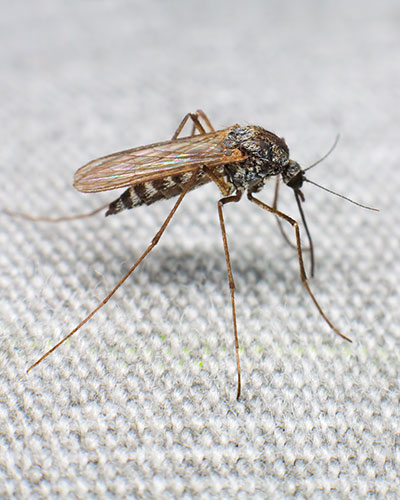
Trial Will Examine Safety and Efficacy in Setting Where Malaria Is Common
Malaria is one of the world’s deadliest diseases: it infects hundreds of millions of people every year, and kills about half a million, most of them under five years of age.
There is no vaccine. Experts agree that an effective vaccine could transform how we deal with the disease, potentially saving millions of lives. Now, researchers at the University of Maryland School of Medicine (UM SOM) are testing a malaria vaccine that has shown success in early tests.
They recently started a Phase 1 trial of the vaccine to test its safety and efficacy, in a place where malaria is common.
The trial, which will test the PfSPZ Vaccine, began last month in Burkina Faso, West Africa. The study is a joint project of the country’s National Center for Malaria Research and Training and the University of Maryland School of Medicine’s Institute for Global Health (IGH).
 The trial is a follow-up to successful clinical trials conducted at the University of Maryland School of Medicine’s Center for Vaccine Development in Baltimore. A study by the same group of researchers, completed earlier this year, found that the vaccine protected against malaria infection up to a year after vaccination.
The trial is a follow-up to successful clinical trials conducted at the University of Maryland School of Medicine’s Center for Vaccine Development in Baltimore. A study by the same group of researchers, completed earlier this year, found that the vaccine protected against malaria infection up to a year after vaccination.
The vaccine was originally developed by Sanaria, a biotech company based in Rockville, Maryland. The current trial is funded by the National Institute of Allergy and Infectious Diseases, part of the National Institutes of Health (NIH). (Grant number: NIH U01AI112367)
“This trial will tell us a lot about how the vaccine works on the ground, in a place where malaria is a real problem,” said Matthew B. Laurens, MD, MPH, Associate Professor of Pediatrics at the UM SOM and IGH, who is co-leading the study. “If the vaccine can work here, it has the potential to help reduce the terrible harm malaria does around the world.” Dr. Laurens is director of the International Clinical Trials Unit, in the IGH Division of Malaria Research.
 Christopher Plowe, MD, MPH, Professor of Medicine, of Microbiology and Immunology, and of Epidemiology and Public Health, as well as director of IGH, is also co-leading the trial. The study will be the first to test the highest dose of the vaccine given so far, and will be one of the first to evaluate how it works against naturally-transmitted malaria in Africa. The higher dose is needed to overcome pre-existing immunity to malaria in regions where the disease is common. Preliminary testing suggests that it will be very effective at this dose.
Christopher Plowe, MD, MPH, Professor of Medicine, of Microbiology and Immunology, and of Epidemiology and Public Health, as well as director of IGH, is also co-leading the trial. The study will be the first to test the highest dose of the vaccine given so far, and will be one of the first to evaluate how it works against naturally-transmitted malaria in Africa. The higher dose is needed to overcome pre-existing immunity to malaria in regions where the disease is common. Preliminary testing suggests that it will be very effective at this dose.
Development of a malaria vaccine is crucial for malaria control and elimination. A vaccine would complement existing tools against malaria, such as insecticide-treated bed nets, post-infection medical treatment, and preventive therapy in pregnant women. “By itself, a vaccine won’t end malaria,” said Dr. Plowe. “But an effective vaccine could get us there a lot faster.”
The trial will enroll 112 adults, and will continue through 2018. It will examine four different doses of the vaccine to see if they are safe. If no safety concerns are identified, an additional 80 adults will receive the highest dose to examine both its safety and efficacy against naturally-transmitted malaria over two years.
 “This trial shows once again that our researchers are doing work that has the potential to change the world,” said UM SOM Dean E. Albert Reece, MD, PhD, MBA, who is also the vice president for Medical Affairs, University of Maryland, and the John Z. and Akiko K. Bowers Distinguished Professor. “Malaria is a worldwide scourge, and is especially damaging for the poorest countries. If we can reduce its effects through this vaccine, we could have a tremendous impact.”
“This trial shows once again that our researchers are doing work that has the potential to change the world,” said UM SOM Dean E. Albert Reece, MD, PhD, MBA, who is also the vice president for Medical Affairs, University of Maryland, and the John Z. and Akiko K. Bowers Distinguished Professor. “Malaria is a worldwide scourge, and is especially damaging for the poorest countries. If we can reduce its effects through this vaccine, we could have a tremendous impact.”
About the University of Maryland School of Medicine
The University of Maryland School of Medicine was chartered in 1807 and is the first public medical school in the United States and continues today as an innovative leader in accelerating innovation and discovery in medicine. The School of Medicine is the founding school of the University of Maryland and is an integral part of the 11-campus University System of Maryland. Located on the University of Maryland’s Baltimore campus, the School of Medicine works closely with the University of Maryland Medical Center and Medical System to provide a research-intensive, academic and clinically based education. With 43 academic departments, centers and institutes and a faculty of more than 3,000 physicians and research scientists plus more than $400 million in extramural funding, the School is regarded as one of the leading biomedical research institutions in the U.S. with top-tier faculty and programs in cancer, brain science, surgery and transplantation, trauma and emergency medicine, vaccine development and human genomics, among other centers of excellence. The School is not only concerned with the health of the citizens of Maryland and the nation, but also has a global presence, with research and treatment facilities in more than 35 countries around the world.
http://medschool.umaryland.edu/
About the Center for Vaccine Development
The Center for Vaccine Development (CVD) at the University of Maryland School of Medicine works nationally and internationally to prevent disease and save lives through the development and delivery of vaccines. As an academic research center, CVD is engaged in the full range of vaccinology, including basic science research, vaccine development, pre-clinical and clinical evaluation, and post-marketing field studies.
http://medschool.umaryland.edu/cvd/
Contact
Office of Public Affairs
655 West Baltimore Street
Bressler Research Building 14-002
Baltimore, Maryland 21201-1559
Contact Media Relations
(410) 706-5260
Related stories
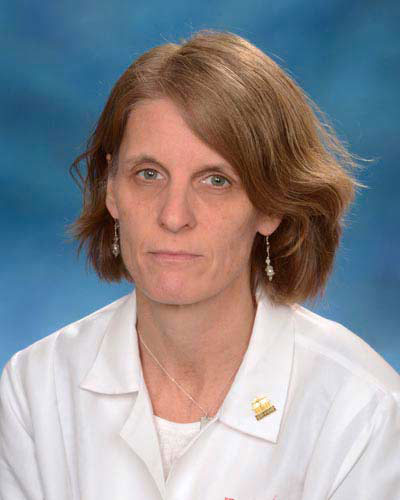
Friday, October 17, 2025
New Monoclonal Antibody Shows Promise for Preventing Malaria Infections
Malaria remains one of the leading causes of death among children in sub-Saharan Africa, claiming more than 600,000 lives each year worldwide with limited efficacy in currently available treatments and vaccines. Now a new early-stage clinical trial found that a novel monoclonal antibody provided dose-dependent full protection against the malaria parasite with minimal side effects.
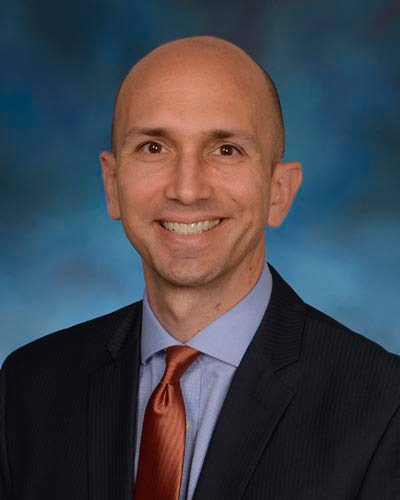
Monday, November 06, 2023
UM School of Medicine's Matthew Laurens Honored with the 2023 Bailey K. Ashford Medal for Pioneering Work in Tropical Medicine
The American Society of Tropical Medicine and Hygiene (ASTMH) has awarded the 2023 Bailey K. Ashford Medal to Matthew B. Laurens, MD, MPH, Professor of Pediatrics at the University of Maryland School of Medicine’s (UMSOM) Center for Vaccine Development and Global Health (CVD). The Medal is an annual accolade commemorating outstanding research in tropical medicine, traditionally presented to mid-career investigators.
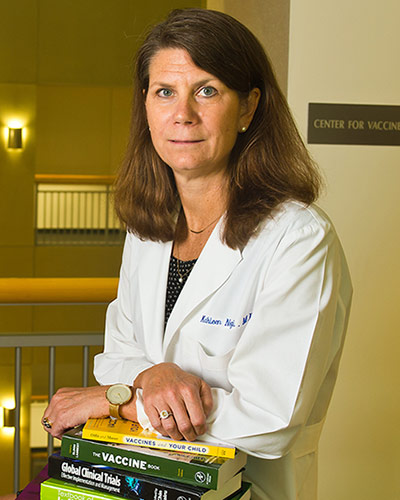
Wednesday, April 05, 2023
UM School of Medicine Researchers Chart Path Forward on Developing mRNA Vaccines for Infections Beyond COVID-19
After helping to develop and test new mRNA technologies for COVID-19 vaccines, University of Maryland School of Medicine (UMSOM) researchers and scientists are turning their attention to utilizing this innovative technology to ward off other infectious diseases like malaria and influenza. Last month, UMSOM faculty in the Center for Vaccine Development and Global Health (CVD) launched a new clinical trial to investigate the use of mRNA technologies to create a vaccine against malaria. CVD Director Kathleen M. Neuzil, MD, MPH, FIDSA also provided commentary in the nation’s leading medical journal on the feasibility of using mRNA to develop a universal influenza vaccine that could eliminate the need for seasonal shots.
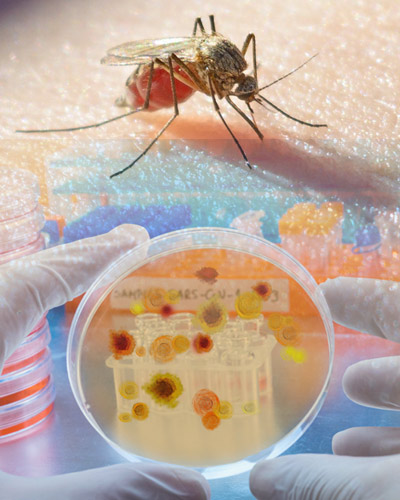
Thursday, December 22, 2022
A Three-Dose Malaria Vaccine Shows Safety, Efficacy in West African Adults
A three-dose regimen of a whole-parasite vaccine against malaria – called Plasmodium falciparum sporozoite (PfSPZ) vaccine – demonstrated safety and efficacy when tested in adults living in Burkina Faso, West Africa, which has endemic malaria. That is the finding of a new study published Dec. 7 in Science Translational Medicine. Researchers at the University of Maryland School of Medicine’s Center for Vaccine Development and Global Health (CVD) led the work.

Monday, July 18, 2022
New Genomic Research Shows Why Testing Malaria Vaccines in the Clinic is as Rigorous as Natural Exposure in the Field
Malaria is the deadliest mosquito-borne parasitic infection of humans. In 2021, after a century of research, the World Health Organization (WHO) approved the world’s first malaria vaccine. That vaccine reduces the incidence of malaria infections in young children aged 5-17 months by only 30 percent, meaning that it remains critical to continue developing and testing more effective vaccines.

Tuesday, November 02, 2021
Unexpected Antibody Type Found in People with Malaria Infections
Malaria, a pathogen transmitted into blood by mosquitoes in tropical climates, is typically thought of as a blood and liver infection. However, in a newly published study, researchers at the University of Maryland School of Medicine (UMSOM) have detected antibodies primarily made in response to infections in the mucous membranes — in such areas as the lungs, intestines, or vagina — in study participants with malaria.

Tuesday, August 13, 2019
UM School of Medicine Researchers Begin Phase 1 Clinical Trial of Vaccine Against Mosquito-Borne Diseases
Mosquito-borne diseases including malaria, dengue and yellow fever, have a severe impact resulting in millions of deaths worldwide, hitting the world’s most vulnerable populations the hardest. Researchers at the University of Maryland School of Medicine (UMSOM) have begun testing an experimental vaccine that is designed to protect against a series of these diseases.
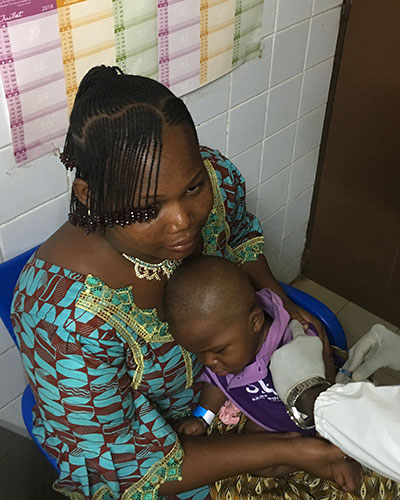
Monday, December 03, 2018
UMSOM and Groupe De Recherche Action En Sante Begin Second Typhoid Conjugate Vaccine Study in Africa
A new study has been launched in Burkina Faso for Bharat Biotech’s typhoid conjugate vaccine (TCV). It is the second clinical study underway in Africa for the vaccine and the first in West Africa. The vaccine study is a joint effort by the Center for Vaccine Development and Global Health (CVD) at the University of Maryland School of Medicine, (UMSOM) and Groupe de Recherche Action en Santé (GRAS) in Burkina Faso.

Sunday, October 28, 2018
American Society of Tropical Medicine & Hygiene Awards Dr. Miriam Laufer the LePrince Medal for Malaria Research
Miriam Laufer, MD, MPH, Professor of Pediatrics and Associate Director for Malaria Research at the University of Maryland School of Medicine’s (UMSOM) Center for Vaccine Development and Global Health (CVD), was awarded the Joseph Augustin LePrince Medal by the American Society of Tropical Medicine and Hygiene (ASTMH).
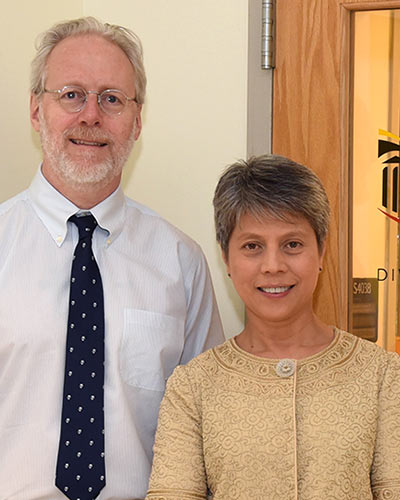
Thursday, May 04, 2017
UM School of Medicine Researchers Receive $9 Million Grant for Malaria Research
The University of Maryland School of Medicine has been awarded an International Center of Excellence for Malaria Research (ICEMR) grant by the National Institutes of Health’s National Institute of Allergy and Infectious Diseases (NIAID), one of seven ICEMRs awarded worldwide. With funding of more than $9 million over seven years, the grant will be used to research and develop new tools to help eliminate drug-resistant malaria in Myanmar and neighboring countries in Southeast Asia.
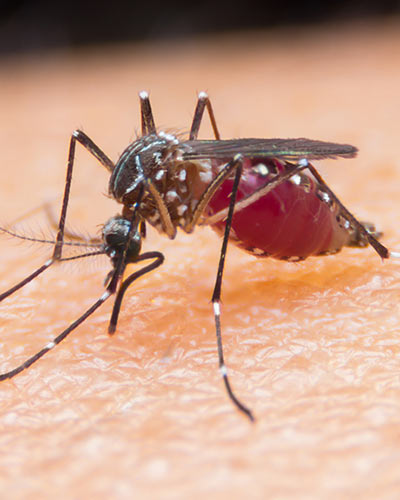
Friday, February 24, 2017
Experimental Malaria Vaccine Provides Durable Protection Against Multiple Strains in NIH Clinical Trial
An experimental malaria vaccine protected healthy subjects from infection with a malaria strain different from that contained in the vaccine, according to a study published this week in the Proceedings of the National Academy of Sciences (PNAS). The research was conducted by scientists at the University of Maryland School of Medicine and the National Institute of Allergy and Infectious Diseases (NIAID), part of the National Institutes of Health (NIH).

Thursday, September 22, 2016
University of Maryland School of Medicine Holds Inaugural Global Health Summit
The Institute for Global Health (IGH) at the University of Maryland School of Medicine (UM SOM) will hold its first Global Health Summit on September 26. The event, which will take place from noon to 6 p.m. in the SMC Campus Center at 621 W. Lombard Street, will seek to foster collaboration among scientists and promote new and innovative global health research at UM SOM, as well as at other schools at the University of Maryland, Baltimore (UMB). Faculty and staff from UM SOM, as well as other schools are welcome at the event.
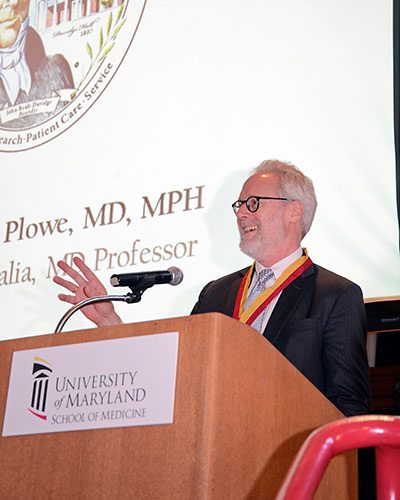
Friday, June 24, 2016
Investiture Celebrates the Courage and Passion of Two University Warriors
In a packed Westminster Hall, with one of the largest audiences to date for any investiture ceremony, Christopher Plowe, MD, MPH, was named the Frank M. Calia, MD Professor of Medicine.

Tuesday, April 12, 2016
UM SOM Researcher Dr. Kathleen Neuzil Honored by Vanderbilt University School of Medicine
The Vanderbilt University School of Medicine (VUSM) has announced that Kathleen Neuzil, MD, MPH, director of the Center for Vaccine Development at the University of Maryland School of Medicine (UM SOM), has received the 2016 Vanderbilt University School of Medicine Distinguished Alumni Award.
